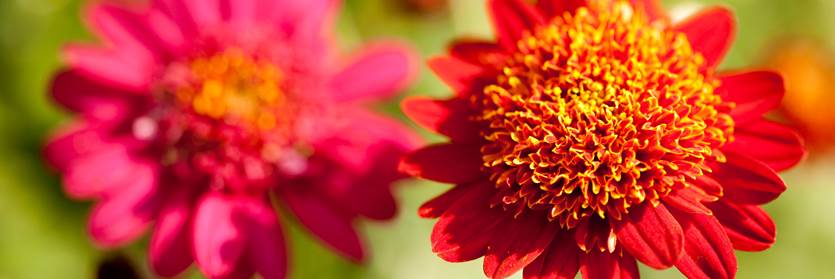Inside The New York Botanical Garden
Trees
Posted in Around the Garden, Photography on December 8 2012, by Matt Newman
Don’t forget to stop in at our Shop in the Garden today between 3 and 4 p.m. Larry Lederman will be in attendance to sign copies of his brand new photography book, Magnificent Trees of the New York Botanical Garden, highlighting the many world-class specimens that we have here–throughout the four seasons.
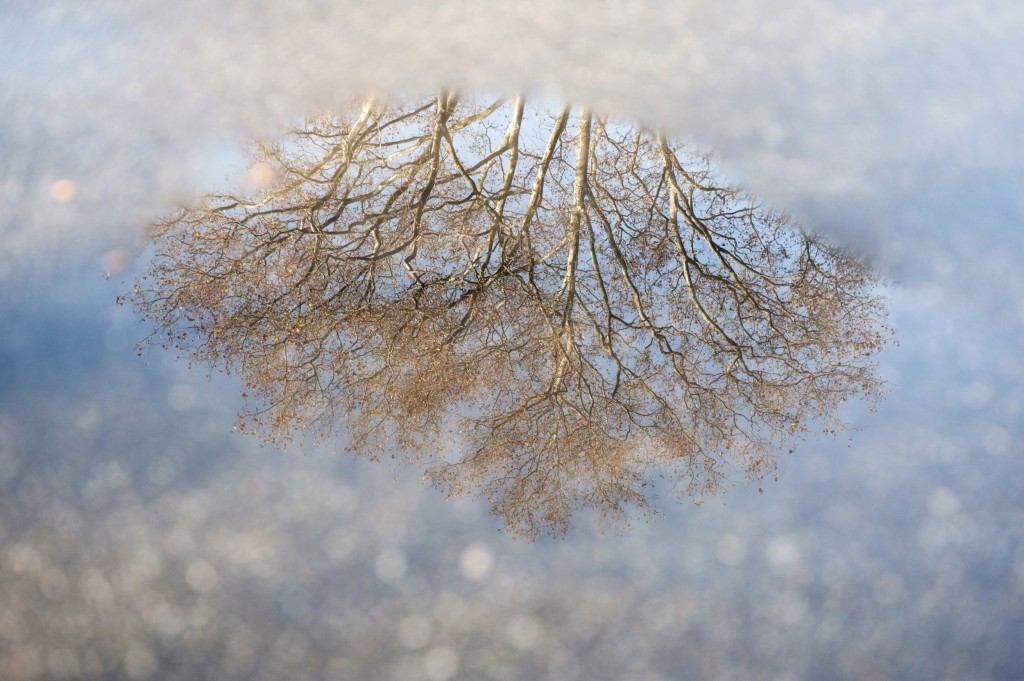
Photo by Ivo M. Vermeulen
Posted in Gardens and Collections on December 4 2012, by Matt Newman
Sonia Uyterhoeven is the NYBG‘s Gardener for Public Education.
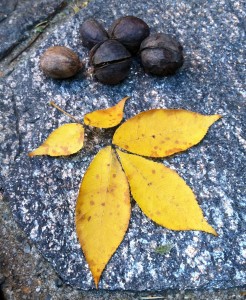 I spend a lot of my time working with John Egenes in the Native Plant Garden. John is the gardener in charge of the area and his discerning eye doesn’t miss an inch of the vast new landscape.
I spend a lot of my time working with John Egenes in the Native Plant Garden. John is the gardener in charge of the area and his discerning eye doesn’t miss an inch of the vast new landscape.
I recently discovered that one of his passions is native trees. One day, during the height of fall foliage, he rattled off some of his favorite trees while pointing out the merits of both foliage and form. One of them–the pignut hickory (Carya glabra)–is situated just outside the Rock Garden, close to the rear service entrance.
The pignut hickory is a close relative to the famous pecan tree (Carya illinoinensis), responsible for your holiday pecan pie. But unlike the pecan, the nuts that the pignut provides are not so palatable. In fact, the name “pignut” is derived from the fact that the nuts are only suitable for swine. In nature, these are a valuable food source for many woodland creatures such as black bears, raccoons, squirrels, blue jays, foxes, rodents, and deer.
Read More
Posted in Around the Garden, Photography on November 16 2012, by Matt Newman
I spent about an hour wandering yesterday, half of that in the Forest and the collections surrounding. It’s impressive–how insulated and peaceful the place is when you have a late afternoon to while away there.
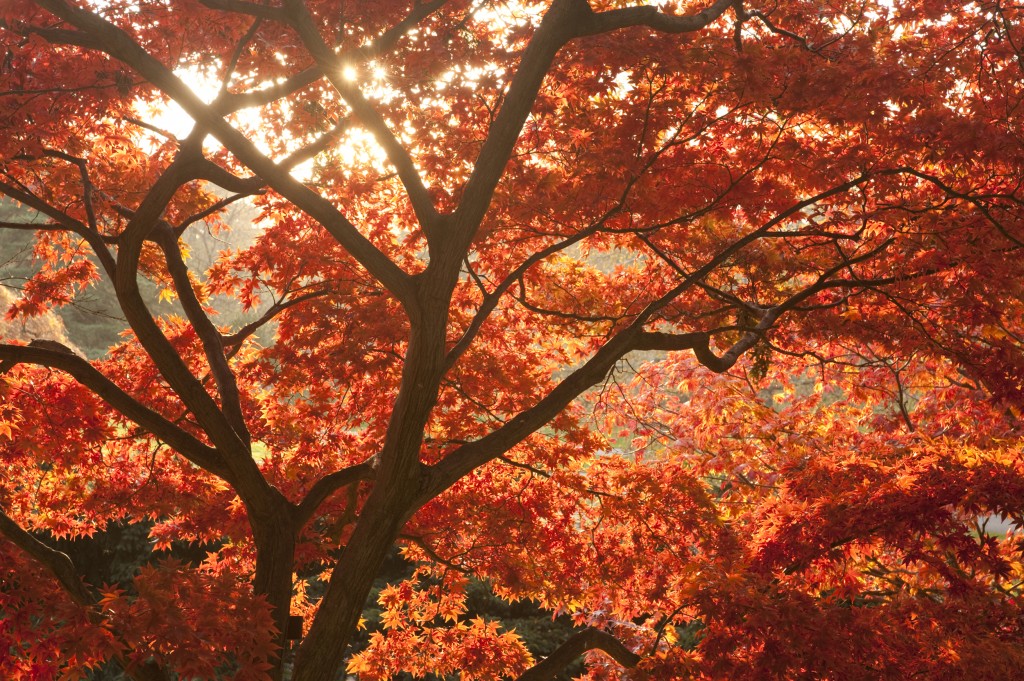
Photo by Ivo M. Vermeulen
Posted in Around the Garden, Photography on November 14 2012, by Matt Newman
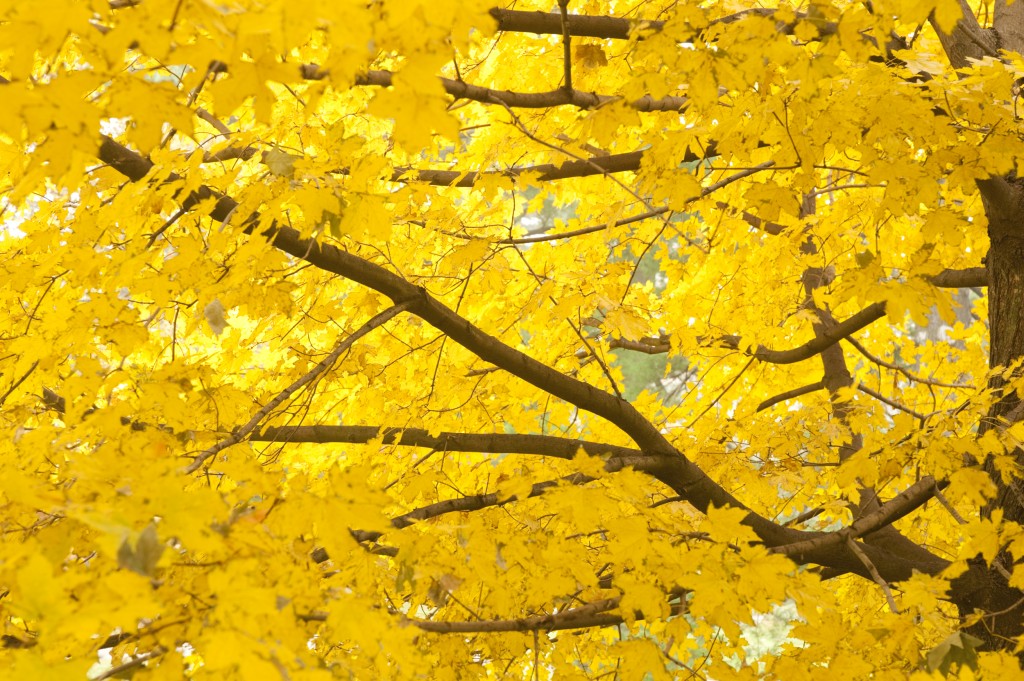
Photo by Ivo M. Vermeulen
Posted in Photography on November 9 2012, by Ann Rafalko
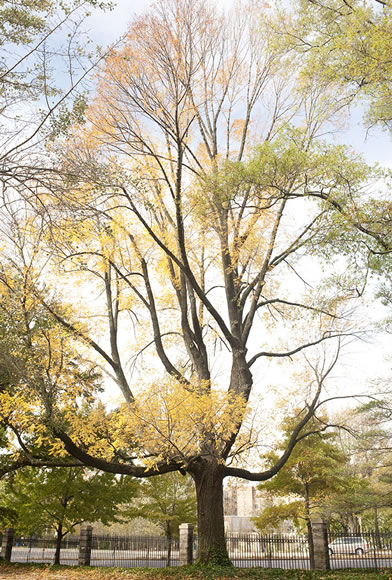
White Ash near Mosholu Gate (photo by Ivo M. Vermeulen)
Posted in Around the Garden, Photography on October 18 2012, by Matt Newman
Color spotted! We’re seeing trees turn in gradients lately. How is fall getting along in your neck of the woods?
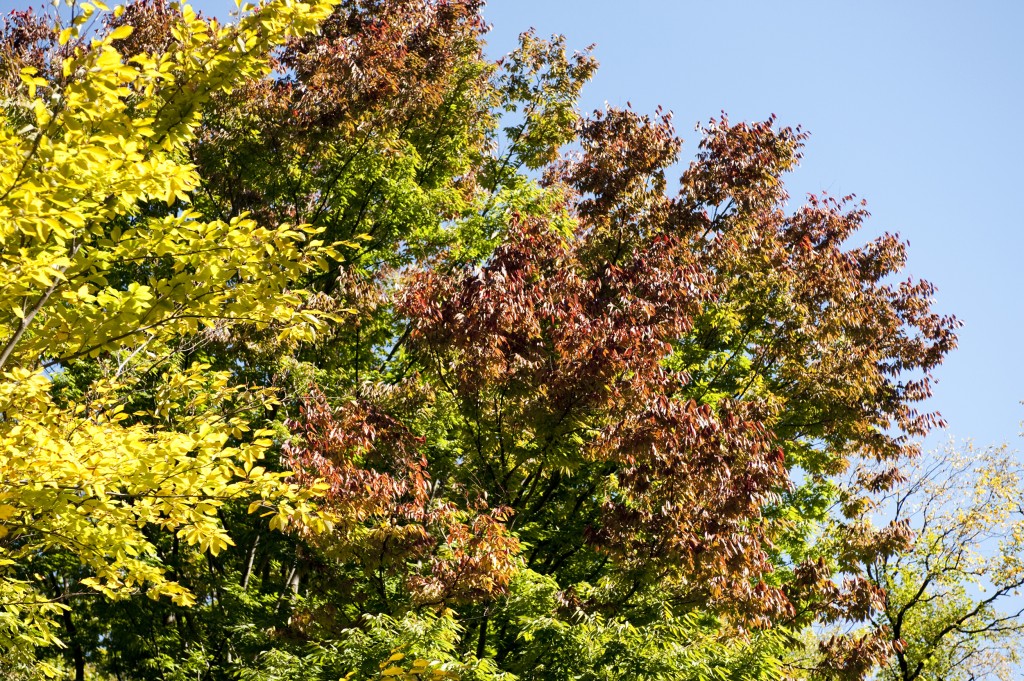
Photo by Ivo M. Vermeulen
Posted in Around the Garden, Video on October 3 2012, by Matt Newman
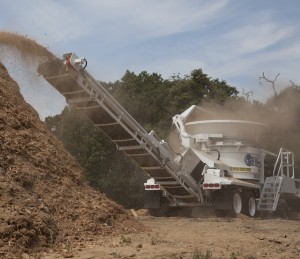 What’s as big as a school bus, full of hammers, and can chew up a log the size of a Mini Cooper in just a few seconds? That would be The New York Botanical Garden‘s new Diamond Z tub grinder, the latest addition to our collection of groundskeeping machinery and easily the most impressive.
What’s as big as a school bus, full of hammers, and can chew up a log the size of a Mini Cooper in just a few seconds? That would be The New York Botanical Garden‘s new Diamond Z tub grinder, the latest addition to our collection of groundskeeping machinery and easily the most impressive.
Tub grinders in this class are essentially glorified mulchers, using rapidly swinging “hammers” to break down organic material into an easy-to-manage pulp. Think of the trailer-sized woodchipper the average home landscaping company uses, then scale that up to industrial proportions, and you have the Diamond Z. It’ll handily take down a bundle of twigs and weeds, but its real talent is in gobbling up enormous segments of tree trunk–up to 30 tons of them per hour–and spitting out useable mulch or compost. After the past year’s fluke storms left us facing damaged trees across the Garden, this was exactly what we needed to tidy up our wood piles.
Read More
Posted in What's Beautiful Now on September 10 2012, by Matt Newman
 It’s something of a quiet Monday here at the NYBG (we’re not open most Mondays; it’s best to give the horticulturists a clear space to do their weekly tidying-up), and the thermometer is dipping rapidly. I’m not going to say that fall has begun, necessarily, as it’s probably just a fluke weather pattern. But it puts me in the mood for looking forward! Thankfully, the prolific Ivo Vermeulen has left me with enough photographs to geek out on some pre-season imagery.
It’s something of a quiet Monday here at the NYBG (we’re not open most Mondays; it’s best to give the horticulturists a clear space to do their weekly tidying-up), and the thermometer is dipping rapidly. I’m not going to say that fall has begun, necessarily, as it’s probably just a fluke weather pattern. But it puts me in the mood for looking forward! Thankfully, the prolific Ivo Vermeulen has left me with enough photographs to geek out on some pre-season imagery.
What carries me so often to the Benenson Ornamental Conifers is what you’d call the most subtle of beauties. But I guess that stands for the Garden’s evergreens in general. They’re not showy in the way that a rose presents, though many of them sport as much–if not more–fragrance. Instead, the conifer lands more in the territory of regal reflection. For most people in the northern hemisphere, nothing quite heralds the season like an evergreen dusted with snow. (Not that we had much opportunity to enjoy that kind of scenery this past winter.)
Read More
Posted in Around the Garden on May 28 2012, by Matt Newman
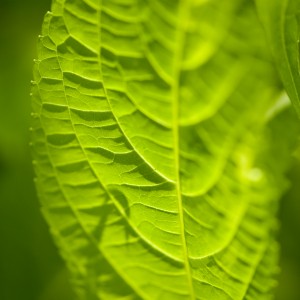 I’ll admit I have a softness for roses, a fondness for orchids, and a weakness for flame-orange poppies. Still, it’s seldom I find an eyeful of flowers so inspirational as an hour spent under the leaves of the trees.
I’ll admit I have a softness for roses, a fondness for orchids, and a weakness for flame-orange poppies. Still, it’s seldom I find an eyeful of flowers so inspirational as an hour spent under the leaves of the trees.
You’ll best understand what I mean while walking the trails of the NYBG‘s Forest around this time of year, arched over in each direction with lacing branches of every shape and angle. The effect is something like slipping a green gel over a stage light. Sun filters down through the canopy and dapples the forest floor with piebald images both cloudy and sharp. It cools you, or seems to, on the most scorching afternoons. And there’s a freshness to the scene that chimes in to remind you–with something resembling pride–of winter’s distance.
Read More
Posted in Photography on April 3 2012, by Ann Rafalko
The dome of the Enid A. Haupt Conservatory is iconic. But the dome on the Library Building has its own charms, especially in spring.

